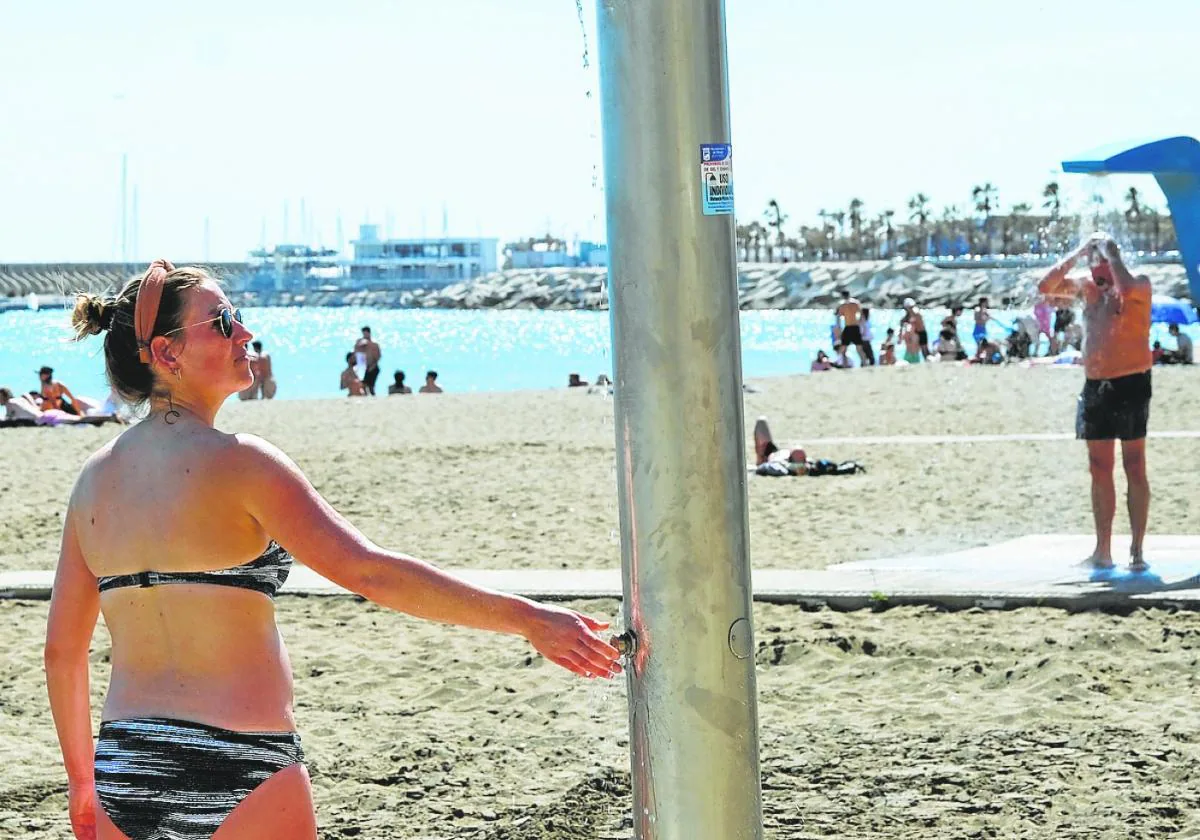No restrictions on water for household use or tourism on Costa del Sol this summer
The Junta will postpone the adoption of drastic measures until the autumn but calls on town halls to do more to reduce water use in their areas
Francisco Jiménez / Eugenio Cabezas
MALAGA.
Friday, 23 June 2023, 10:41
The Costa del Sol will get through the summer with no major water restrictions despite the ongoing drought situation affecting much of Spain. Any drastic measures affecting water use, such as rationing, will be considered again in the autumn, unless the area sees substantial rainfall before then.
The regional government committee that has been managing the drought response for the water catchment area that covers Malaga province, made the decision at the end of last week.
The committee did, however, call for local councils to step up measures to reduce water consumption by around 10% in urban areas by not using mains drinking water to wash down streets or to water parks and gardens. This measure had already been in place for the Axarquía and eastern Costa del Sol area and will now be extended to the western Costa del Sol and Malaga city.
However, local councils won't have to turn off the showers on beaches at the height of summer, as long as other measures achieve the 10% saving target. Town halls had been worried about the negative effect on beach tourism by doing this.
This decision is aimed at "guaranteeing supply to the local population as well as normal activity in the tourism industry at this time of prolonged drought", said the secretary-general for water at the Junta de Andalucía and president of the committee, Ramiro Angulo.
Currently the reservoirs in the province of Malaga contain 190.6 cubic hectometres of water, only a third of their maximum capacity (611.48). This is 40 per cent less than the figure recorded this time last year: 313 Hm3.
Axarquía, worst hit
By local district in the province, the worst-off area continues to be the Axarquía and eastern Costa where La Viñuela reservoir is at only 9.4% of its capacity. Farmers have been officially banned from using water from it to water crops since October last year and forced to use treated water from sewage plants.
The committee called on town halls in the Axarquía to step up and help enforce bans on using drinking water for street washing, filling private pools, watering gardens or washing cars. It is felt that these measures that came in in that area in 2021 are not being complied with.
The situation is less acute in the Guadalhorce valley and Malaga city areas, although the three reservoirs that supply this area (Guadalhorce, Guadalteba and Conde del Guadalhorce) are currently 35% full at 121.7 Hm3 of their 345.5 Hm3 capacity.
With the level now below 140 Hm3, the restrictions of 10% affecting the use of mains water for watering gardens and washing down streets will now come into effect.
Western Costa del Sol
For the area from Torremolinos to Manilva on the western Costa del Sol, water supply is in better shape. All uses are guaranteed during high season, leaving the door open to "studying the possibility of reductions from 1 October, depending on rainfall", according to the committee.
The western Costa is supplied with water from the smaller La Concepción reservoir near Marbella, currently 67% full at 38.6 Hm3. It also benefits from water provided by the Marbella desalination plant as well as excess water piped from the Campo de Gibraltar area. For the time being, this is sufficient to ensure "demand can be met in the critical summer period", although responsible use and a reduction in mains water use of ten per cent is being targeted too here.
Inland Malaga province
In terms of the area inland, away from the Costa, the drought management commission also released the report on the non-regulated areas (headwaters of the Guadalhorce and the lower basin of the river), which also considers the possibility of reducing urban supply by 10% by implementing saving measures in municipalities such as Antequera, Alhaurín de la Torre, Alhaurín el Grande, Álora, Cártama and Coín.
